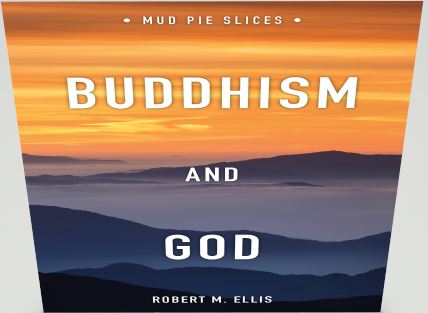Buddhism and God: Seeking the Middle Way
A pragmatic and experiential way through the big dogmas of ‘Buddhism’ versus ‘God’.

‘Buddhism’ and ‘God’ are both powerful ideas rooted in powerful experiences for individuals, but form the basis of conflicting religious traditions. Many Buddhists interpret Buddhism as atheistic, clearly rejecting God. Theists, for their part, reject Buddhism because they see true religion as necessarily involving God. Universalists, on the other hand, may see God and Enlightenment as ultimately the same. Who, if anyone, is right?
This book takes none of these approaches at face value, but tries to look behind the dogmatic conflicts. Which is the most helpful of the many ways of interpreting both ‘God’ and ‘Buddhism’? What human experiences do those different interpretations relate to? Success in the inquiry depends on disentangling the meanings given to words and maintaining an open attitude. It offers a pragmatic and experiential resolution of these debates in the face of the dogmas of tradition.
Contents
Prologue
Introduction
1. The meaning of God for theists
The traditional definition of God
Absolute belief in God as a tool of power
Distinguishing belief from experience of God
God as an archetype
Separating belief from meaning
2. The meaning of Buddhism for theists
Buddhism fails when certainty is required
The basis of uncertainty in Buddhism
The finality of enlightenment as belief or meaning
3. The meaning of God for exclusivist Buddhists
God and gods in Buddhism
Faith in Buddhism
Belief in God as ‘eternalist’
Faith in God and faith in Buddhism
Is Buddhism atheist?
Buddhism and agnosticism
Summary: the limitations of exclusivist Buddhism
4. The meaning of Buddhism for exclusivist Buddhists
The appeal to final enlightenment in Buddhism
The Middle Way as an alternative interpretation
Compatibility between Buddhist and theistic Middle Ways
5. The meaning of God for universalists
Universalism and its strengths
The projection of God as ‘ultimate reality’
Naïve and critical universalism
Appropriation and naïve universalism
Critical universalism and the Middle Way
6. The meaning of Buddhism for universalists
Enlightenment and ‘ultimate reality’
The ambiguity of ‘dharma’
Critiquing naïvely universal Buddhist formulae
Buddhist inspiration for functional questions about God
Effective ways of breaking down barriers with theism
Conclusion
Summary of the argument
Interpretation of the argument
The wider context in Middle Way Philosophy
The future of theism and Buddhism
References
Further Reading
About the Author
